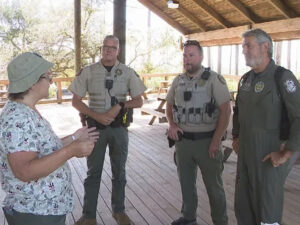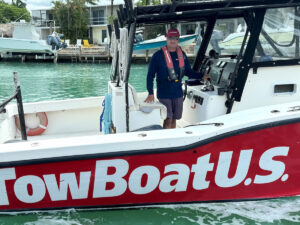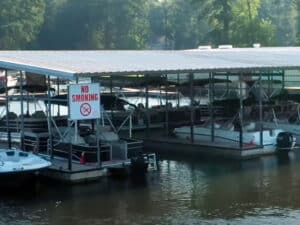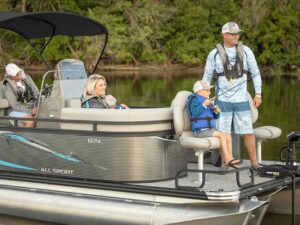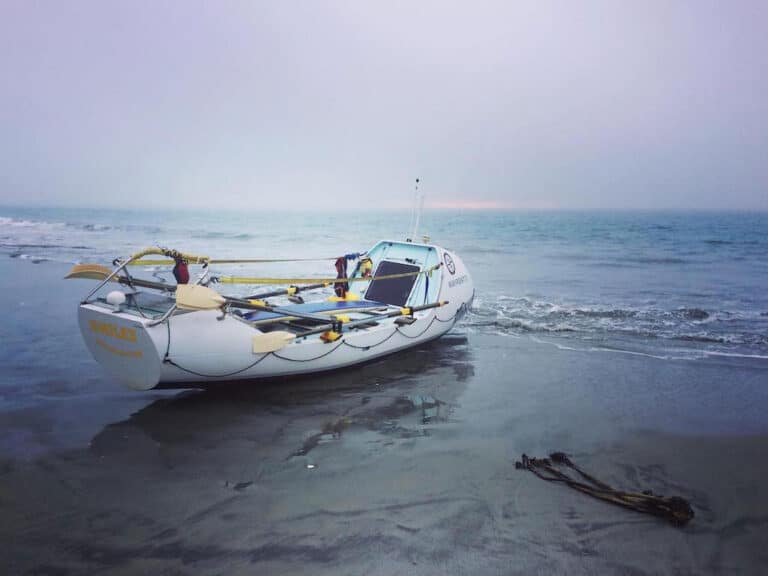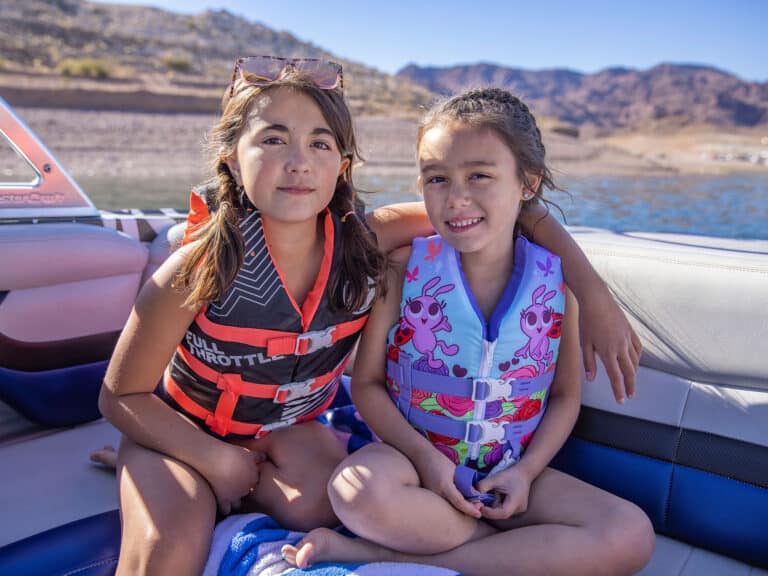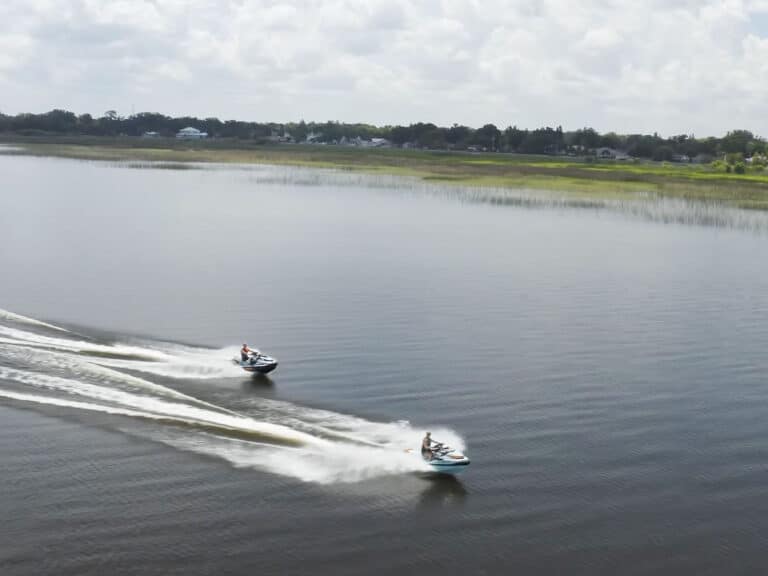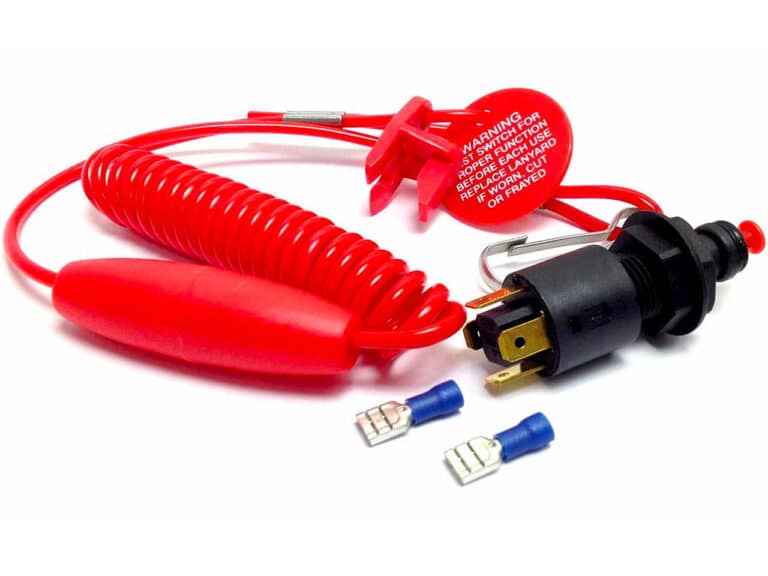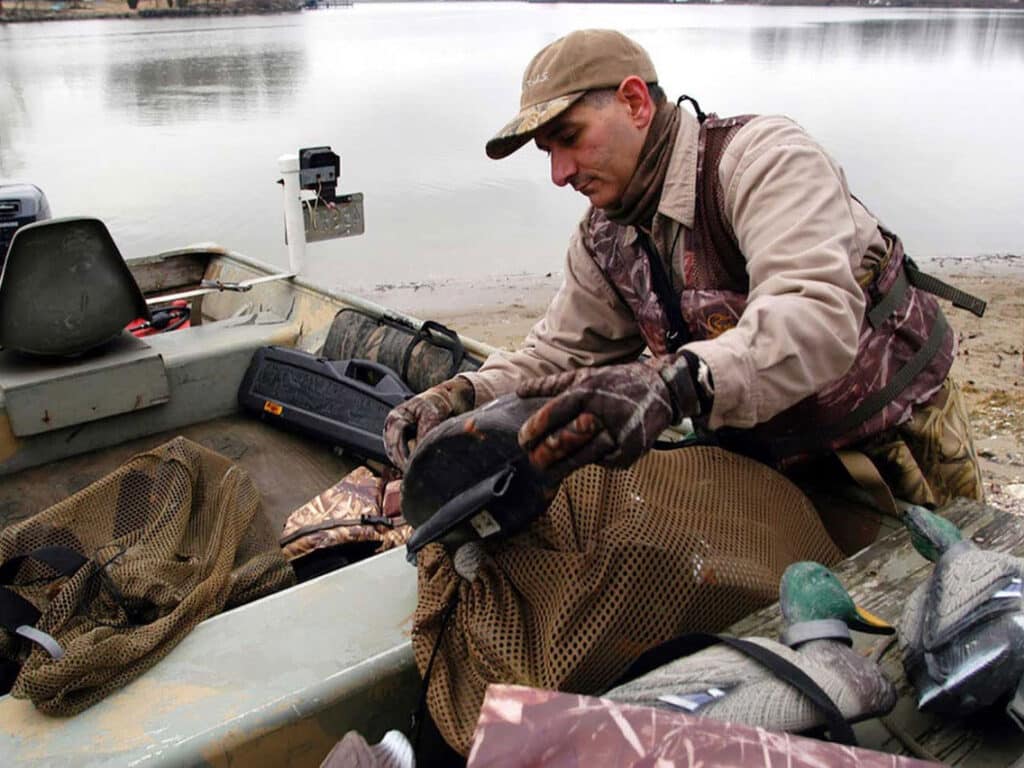
Between my passion for the outdoors and my work as a fisheries biologist, I’ve logged thousands of days in the field and on the water. But in all my hunting and boating adventures, I didn’t get the chance to hunt ducks from a small boat until this season.
A friend’s uncle has a skiff set up for duck hunting, and they invited me along. We met at the boat ramp at 4 o’clock in the morning. It was cold and dark, and my buddy Mike introduced me to his uncle, whose name was also Mike. Big Mike’s handshake was firm and cold; he’d been working on something at the front of the skiff, and after our quick hello, he was right back at it. The boat was about 20 feet long and equipped with a brand-new outboard. It was wrapped in camo, with a flat bottom, and even in the moonlight, I could see that the inside was neat and squared away.
“Try it now!” Big Mike said to his nephew.
My buddy flipped a switch, and the red and green running lights came to life. “OK,” Big Mike said. “We’re good to go!”
I remember thinking that it would’ve been easy to launch the boat without working lights and just drift under the light of the moon until sunup. But that is not how Big Mike rolls.
As I loaded up my gear, Big Mike tossed me an inflatable life vest. The bright orange inflation handle was easy to spot in the moonlight. After I put it on, Big Mike cinched it up tight and made sure it was fit to me correctly. He checked the cannister to make sure it was armed, then showed me the self-inflating valve.
We launched flawlessly and made our way to the main river. The current was slow but moving. Under the guidance of the red and green running lights, as well as a white headlight, we slowly made our way downstream. Under the pending sunrise, I could see no other boats in sight, but Mike kept the speed of the vessel low and safe in the dim light.
As we ran, I noticed that the vessel had two anchors: one in the bow and one in the stern. Big Mike explained that we would nestle into the reeds with the sun at our back and drop both anchors to keep the vessel in place and stable. Each anchor line had a quick-release clasp and a buoy, making it easy to release the lines, collect downed ducks, and re-anchor.
After a few minutes Big Mike eased to the side of the river and nosed into a short canal that opened into a sizable pond. Soon I could hear the hull cracking through a thin layer of ice. “Not a lot of current in here,” Big Mike said. He didn’t have to remind us how cold the water was.
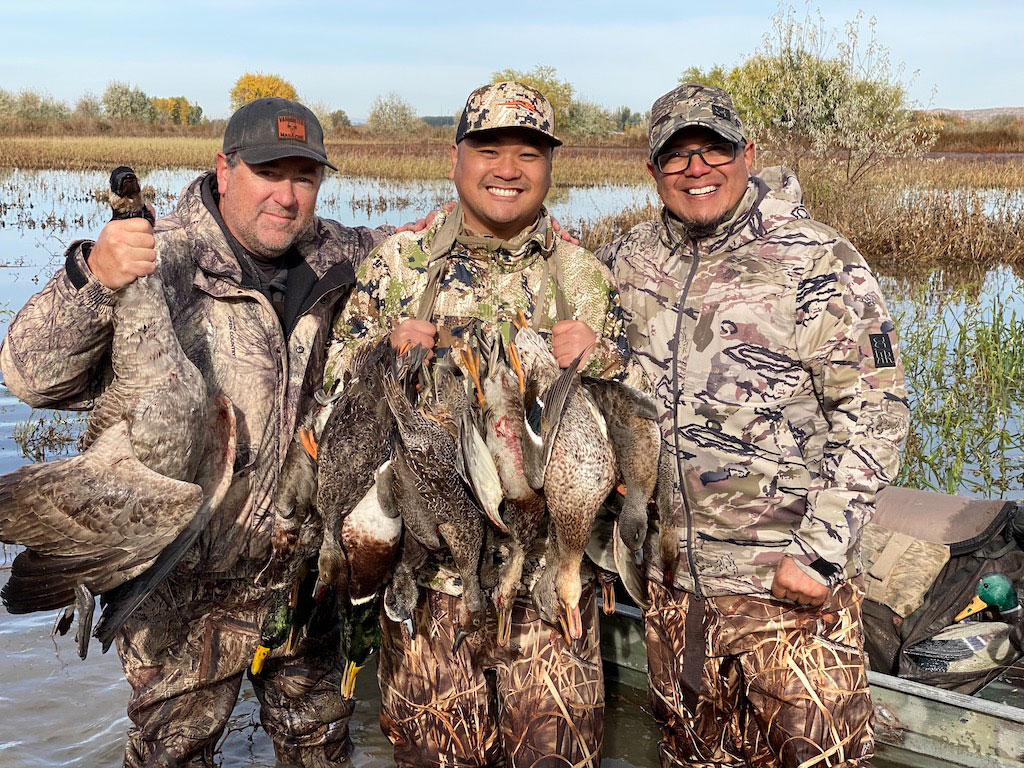
As the sun came up, I noticed a few more items. Tucked under the oars within easy reach was a pole about 10 feet long with a blunted hook at the end—what I’ve always called a life hook and what marine stores market as boat hooks. Whatever you choose to call it, in freezing-water conditions, this instrument is paramount for pulling a weak or unconscious person closer to the boat for rescue. Having taken an unexpected cold dip myself when I was younger, I can tell you that cold water will pull the breath right out of you. Known as cold-water shock, this involuntary response can cause an overboard passenger to inhale a lungful of water almost instantly. It’s a leading cause of drowning and another good reason to always wear your life jacket.
All of us wore our inflatable vests and sat on floating seat cushions. When I commented on the number of flotation devices in Big Mike’s boat—10 by my count—he said, “That’s how we do it, Tim!” As captain of his boat, Big Mike called the shots. To keep things safe, no one was to stand in the boat, and we were to shoot only when he called our name. As Big Mike explained the rules, I noticed the curly red engine-cutoff lanyard on his wrist.
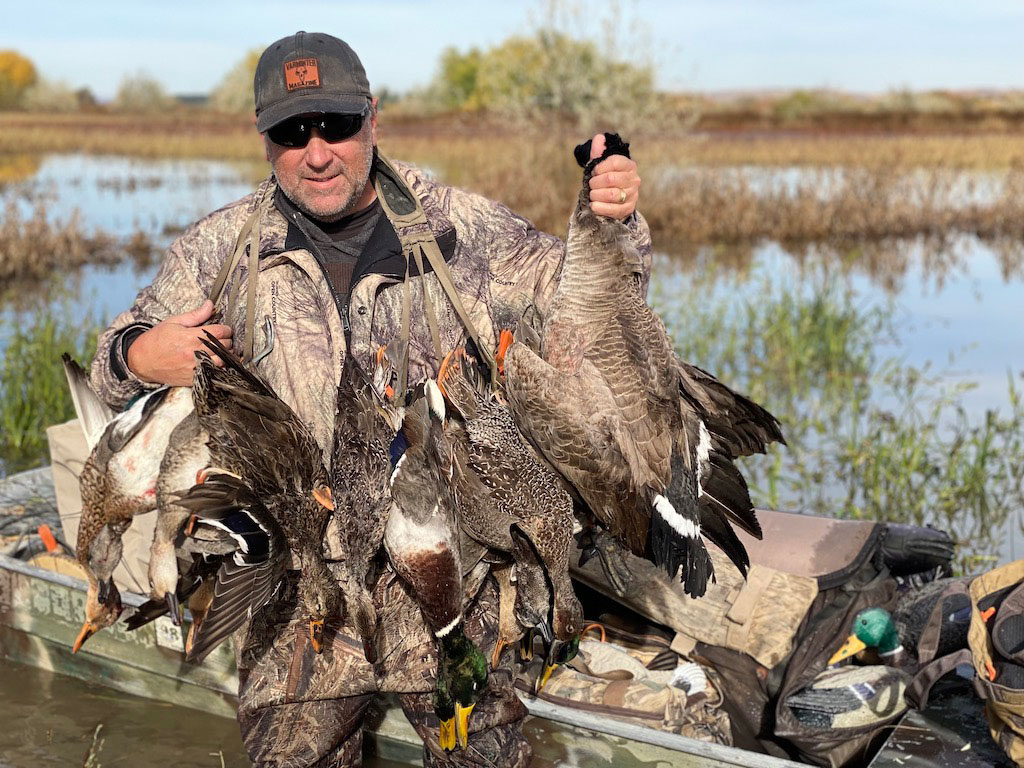
The morning was a blur of constant shooting and amazing sights. Big Mike’s rules had the shoot running smoothly, and we all took our share of ducks, had a fabulous time, and were safely back at the parking lot by noon.
After we cleaned things up, Big Mike stuck out his hand. “Tim, whenever I have an extra spot in the boat for hunting, I’m giving you a call.” I got the feeling that Big Mike kept his hunting circle small and felt honored to be part of it. I held his handshake and thanked him, adding how impressed I was with his attention to safety. He smiled sheepishly and looked away. For an instant, I got the feeling that Big Mike may have experienced something bad on that river, but I left it alone. The day had ended perfectly, and I wanted to keep it that way.
The U.S. Coast Guard is asking all boat owners and operators to help reduce fatalities, injuries, property damage, and associated healthcare costs related to recreational boating accidents by taking personal responsibility for their own safety and the safety of their passengers. Essential steps include: wearing a life jacket at all times and requiring passengers to do the same; never boating under the influence (BUI); successfully completing a boating safety course; and getting a Vessel Safety Check (VSC) annually from local U.S. Coast Guard Auxiliary, United States Power Squadrons®, or your state boating agency’s Vessel Examiners. The U.S. Coast Guard reminds all boaters to “Boat Responsibly!” For more tips on boating safety, visit uscgboating.org.

